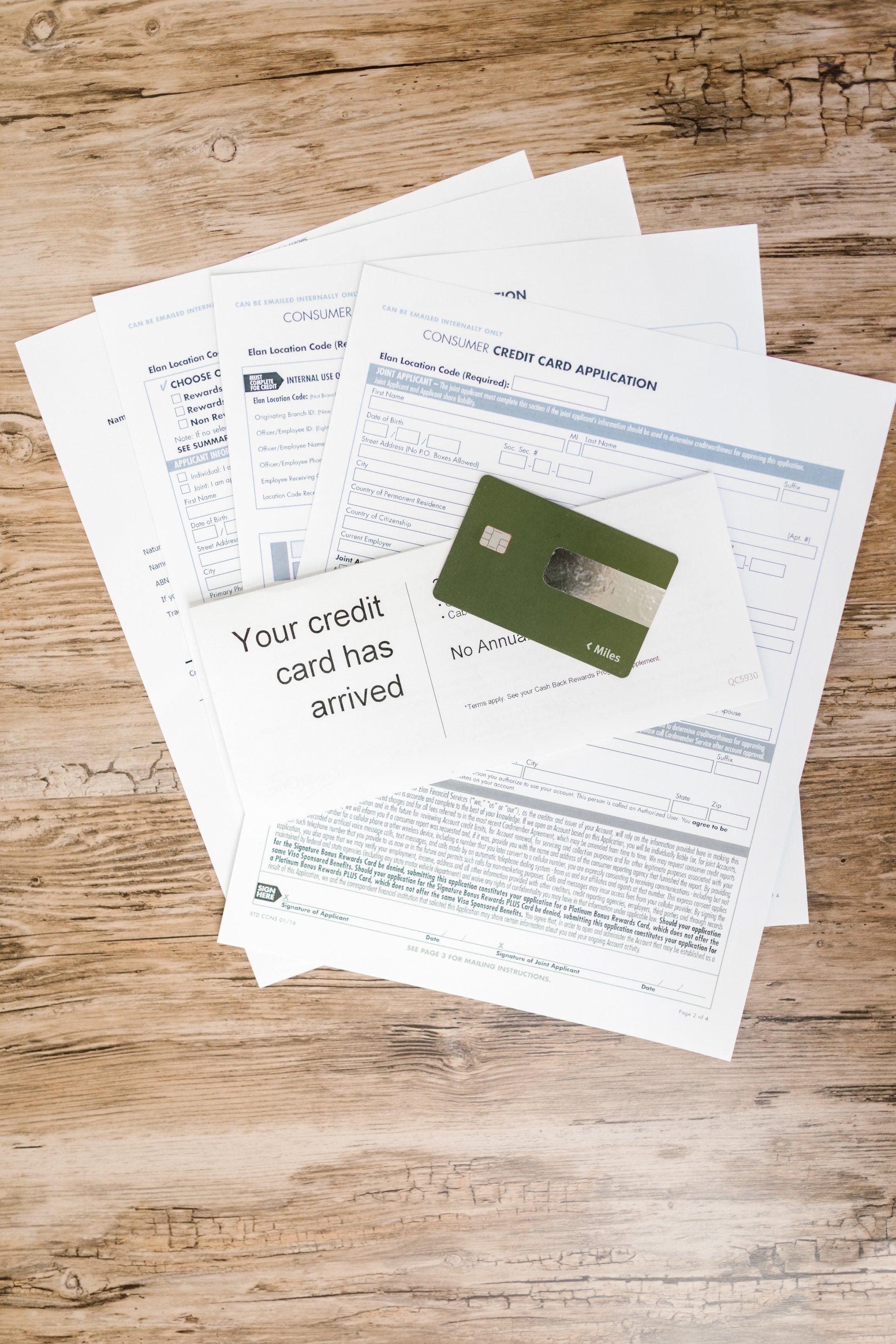Credit Report Guide: Understand, Analyze & Improve

Introduction:
Your credit report is a foundational financial document that provides a comprehensive summary of your credit history. It plays a significant role in determining your creditworthiness when applying for loans, mortgages, credit cards, or even certain job opportunities. Understanding and analyzing your credit report is essential to identify areas for improvement and ensure a healthy financial future. In this comprehensive guide, we'll delve deeper into the key aspects of your credit report and offer valuable tips to improve your credit score.
I. What is a Credit Report?
A credit report is a detailed record of your borrowing and repayment history with various financial institutions. Credit bureaus compile and maintain this information by collecting data from lenders, creditors, and public records. In the United States, the main credit bureaus are Equifax, Experian, and TransUnion. Your credit report typically includes the following information:
- Personal Information: Your name, address, Social Security number, date of birth, and employment history are listed on your credit report to help identify you accurately. Ensure that this information is up-to-date and correct.
- Credit Accounts: A comprehensive list of your credit accounts, including credit cards, loans, and mortgages, along with their current balances, credit limits, and payment history. This section highlights whether you've made timely payments or if you have any outstanding debts. It also indicates whether an account is in good standing, delinquent, or in collections.
- Inquiries: Records of inquiries made by lenders or creditors when you apply for credit. "Hard inquiries" occur when you apply for new credit, and too many of these in a short period can lower your credit score. On the other hand, "soft inquiries," such as when you check your own credit report or when a potential employer conducts a background check, do not impact your credit score.
- Public Records: Any bankruptcies, tax liens, or civil judgments against you are listed in this section. Public records can have severe negative effects on your credit score and may stay on your report for several years.
II. Analyzing Your Credit Report:
Analyzing your credit report is crucial to understanding your financial standing and identifying areas that need improvement. Here's what you should look for:
- Check for Errors: Review your personal information, account details, and payment history carefully for any inaccuracies. Errors could negatively impact your credit score and may even lead to identity theft. It's essential to dispute any discrepancies with the credit bureau to have them corrected promptly.
- Payment History: Your payment history is one of the most critical factors in calculating your credit score. Aim to have a record of on-time payments, as late or missed payments can significantly damage your creditworthiness. If you notice any late payments on your report that you believe were made on time, contact the creditor to rectify the situation.
- Credit Utilization: This refers to the amount of credit you're using compared to your total credit limit. A high credit utilization ratio, typically above 30%, can indicate that you are relying too heavily on credit and may be considered a higher credit risk. Aim to keep your credit utilization below 30% to demonstrate responsible credit management.
- Length of Credit History: The length of your credit history is another crucial factor in determining your credit score. A longer credit history generally reflects more stability and can positively affect your credit score. Avoid closing old accounts, as they contribute to the overall age of your credit, which can be beneficial for your score.
- Types of Credit: Having a mix of credit types, such as credit cards, installment loans, and retail accounts, can be beneficial, but only if managed responsibly. Lenders like to see that you can handle different types of credit and manage them effectively.
- Negative Items: Pay close attention to any negative items, such as late payments, charge-offs, or collections accounts. These derogatory marks can have a significant adverse impact on your credit score. While they may stay on your report for several years, their impact lessens over time, especially as you build a more positive credit history.
III. Improving Your Credit Score:
Improving your credit score takes time and effort, but the results are worth it. Here are some actionable tips to boost your creditworthiness:
- Pay Bills on Time: Consistently paying your bills by their due dates is the most effective way to improve your credit score. Set up reminders or automatic payments to avoid missing due dates, and consider enrolling in electronic statements to stay organized.
- Reduce Debt: Work on reducing outstanding balances, especially on credit cards with high utilization rates. Paying down debt can have a positive impact on your credit utilization ratio, which is a significant factor in your credit score calculation.
- Avoid Opening Multiple New Accounts: Each new credit application can result in a hard inquiry on your credit report, which may temporarily lower your score. Only apply for new credit when necessary and avoid opening multiple accounts within a short period.
- Check Your Credit Report Regularly: Monitoring your credit report is essential for detecting errors, potential identity theft, or fraudulent activities. You are entitled to one free credit report from each of the major credit bureaus every 12 months through AnnualCreditReport.com. Take advantage of this and review your report regularly.
- Set Up Payment Reminders: Consider setting up payment reminders to ensure you never miss a due date. Timely payments play a crucial role in building a positive credit history.
- Pay Off Collections and Charge-Offs: If you have any accounts in collections or charge-offs, try to negotiate with the creditor to settle the debt or establish a payment plan. Paying off these accounts will show a more positive credit history and may also provide an opportunity to have the negative marks updated on your report.
- Become an Authorized User: If someone you trust has a credit card with a long history of on-time payments and a low credit utilization ratio, ask them to add you as an authorized user. Their positive credit behavior may reflect on your credit report and help boost your score.
- Apply for Credit Sparingly: Every time you apply for credit, it results in a hard inquiry on your credit report. Multiple hard inquiries can negatively impact your score. Be selective in your credit applications and only apply when you genuinely need credit.
Conclusion:
Understanding, analyzing, and improving your credit report are essential steps toward achieving a healthy financial future. By responsibly managing your credit, making timely payments, reducing debts, and addressing any errors or negative items, you can steadily improve your credit score over time. A better credit score opens doors to more favorable financial opportunities and helps you achieve your financial goals. Remember that building good credit habits requires discipline and patience, but the long-term benefits are well worth the effort. Stay proactive in managing your credit, and you'll be on your way to a stronger financial foundation. Regularly monitor your credit report, stay informed about changes in your credit score, and take the necessary steps to improve and maintain a positive credit history.
#CreditReport #CreditScore #FinancialHealth #Creditworthiness #PersonalFinance #CreditEducation #CreditTips #CreditKnowledge #FinancialLiteracy #CreditManagement #CreditImprovement #BuildingCredit #CreditRepair #GoodCreditHabits #CreditMatters #HealthyCredit #FinancialWellness #CreditBuilding #CreditSavvy #CreditResponsibility







American Score Increase: Revolutionizing Credit Solutions
American Score Increase is a leading Credit Management organization, dedicated to empowering individuals globally to realize their financial aspirations. With a powerhouse team that brings together extensive knowledge from Mortgage Lending, comprehensive Credit Repair, strategic Credit Counseling, and effective Debt Consolidation, we've established ourselves as the go-to destination for holistic financial solutions. Harnessing this diverse expertise, we stand unmatched, solidifying our reputation as the industry's most dynamic and comprehensive Credit Restoration hub.
Email us:
contact@americanscoreincrease.com
Address:
3335 Placer St Suite 133
Redding CA 96001
800 W Main St ste 1460
Boise ID 83702
All Rights Reserved | American Score Increase Inc


